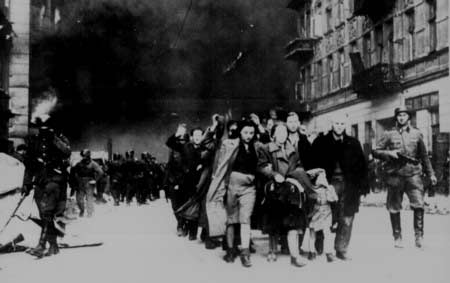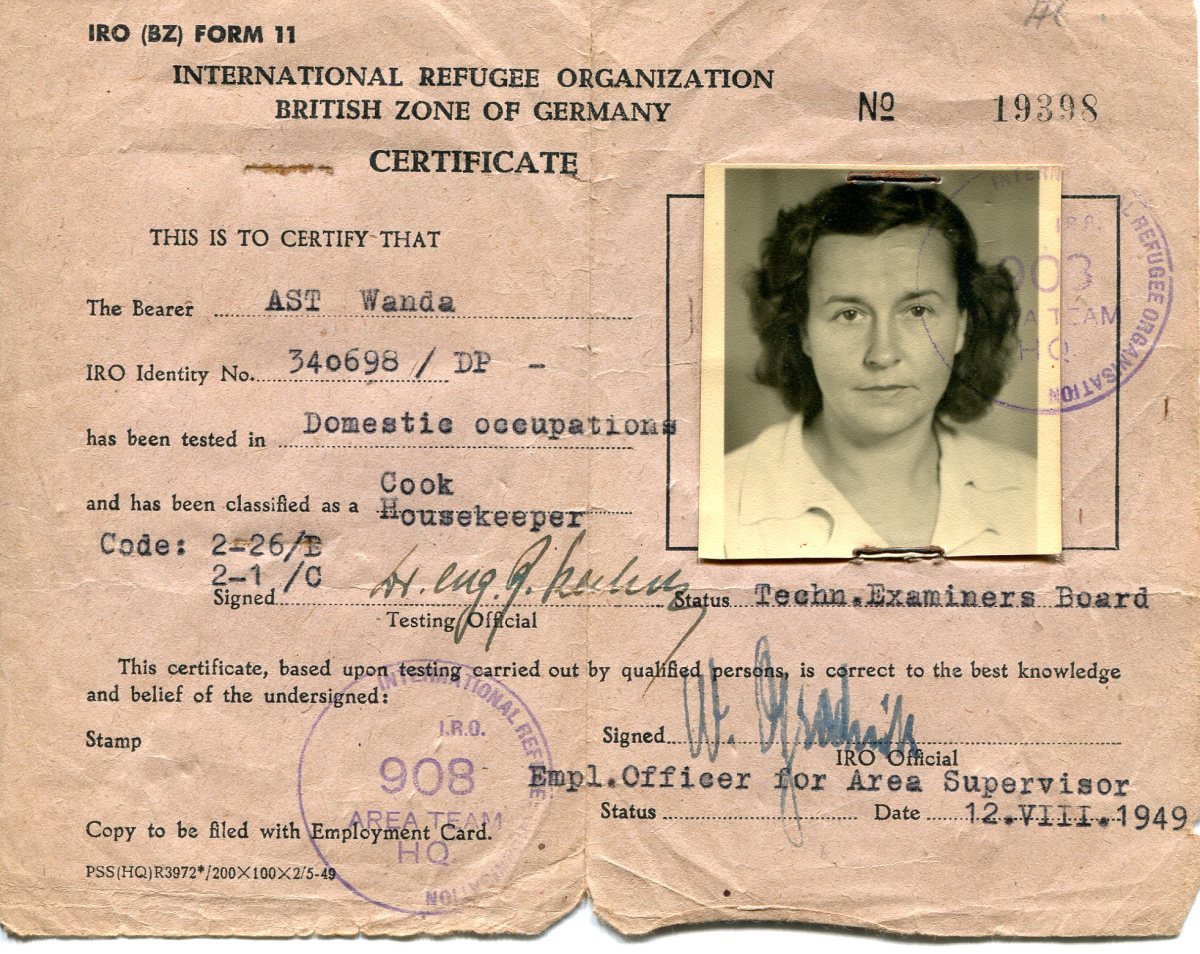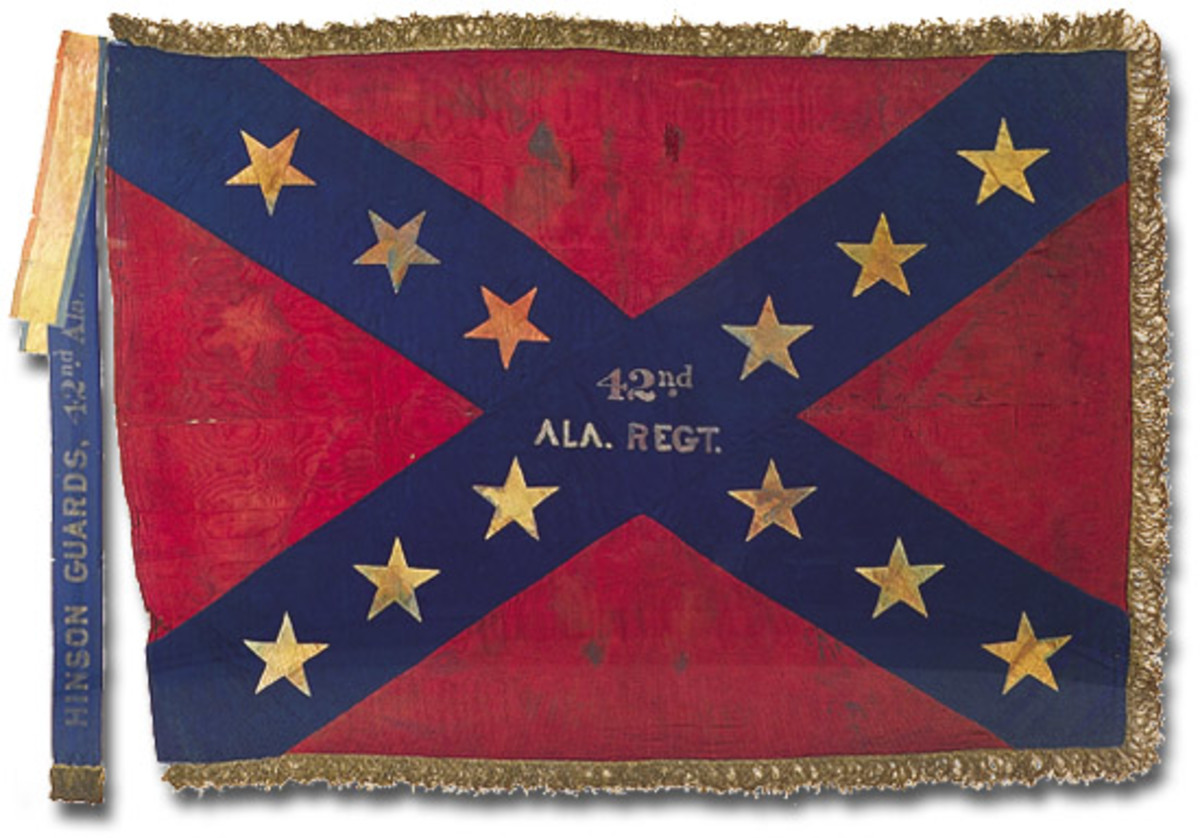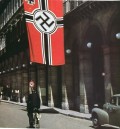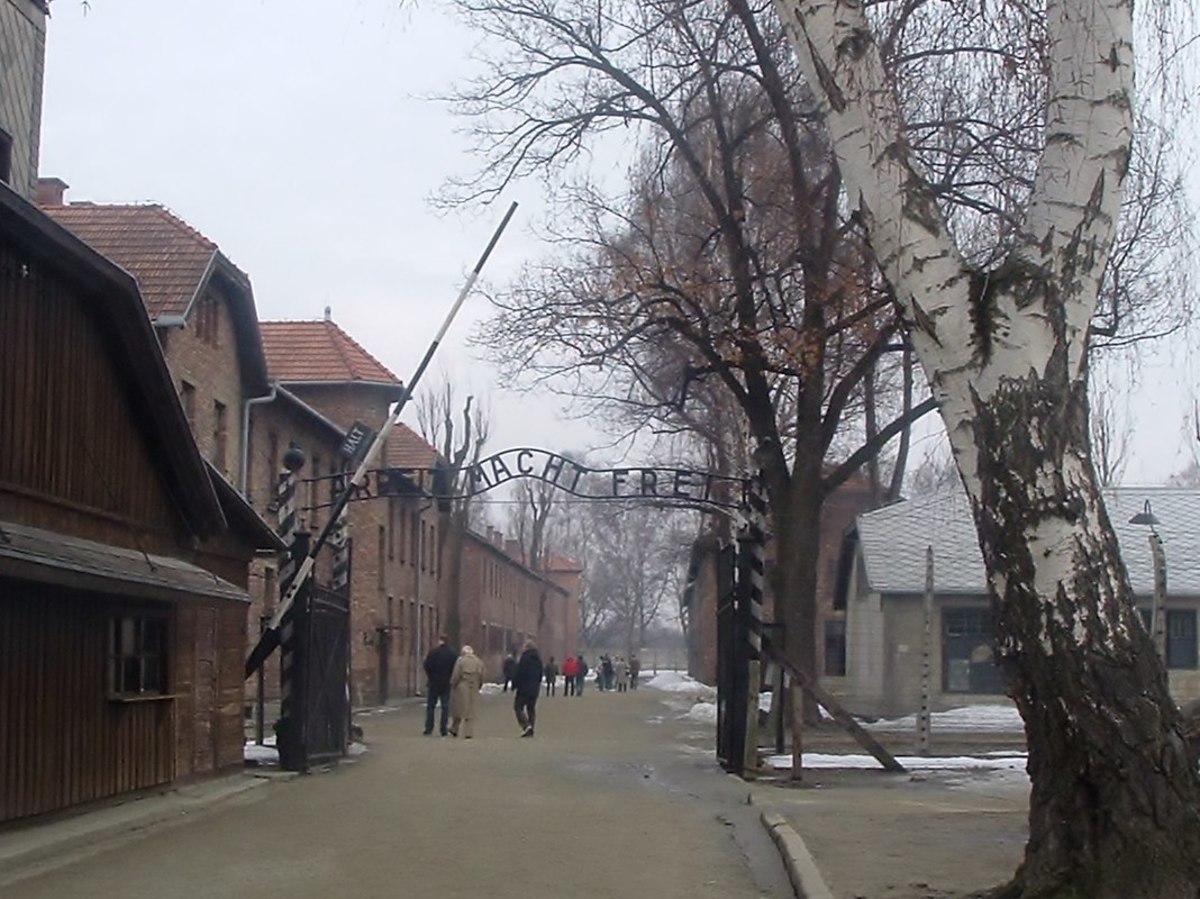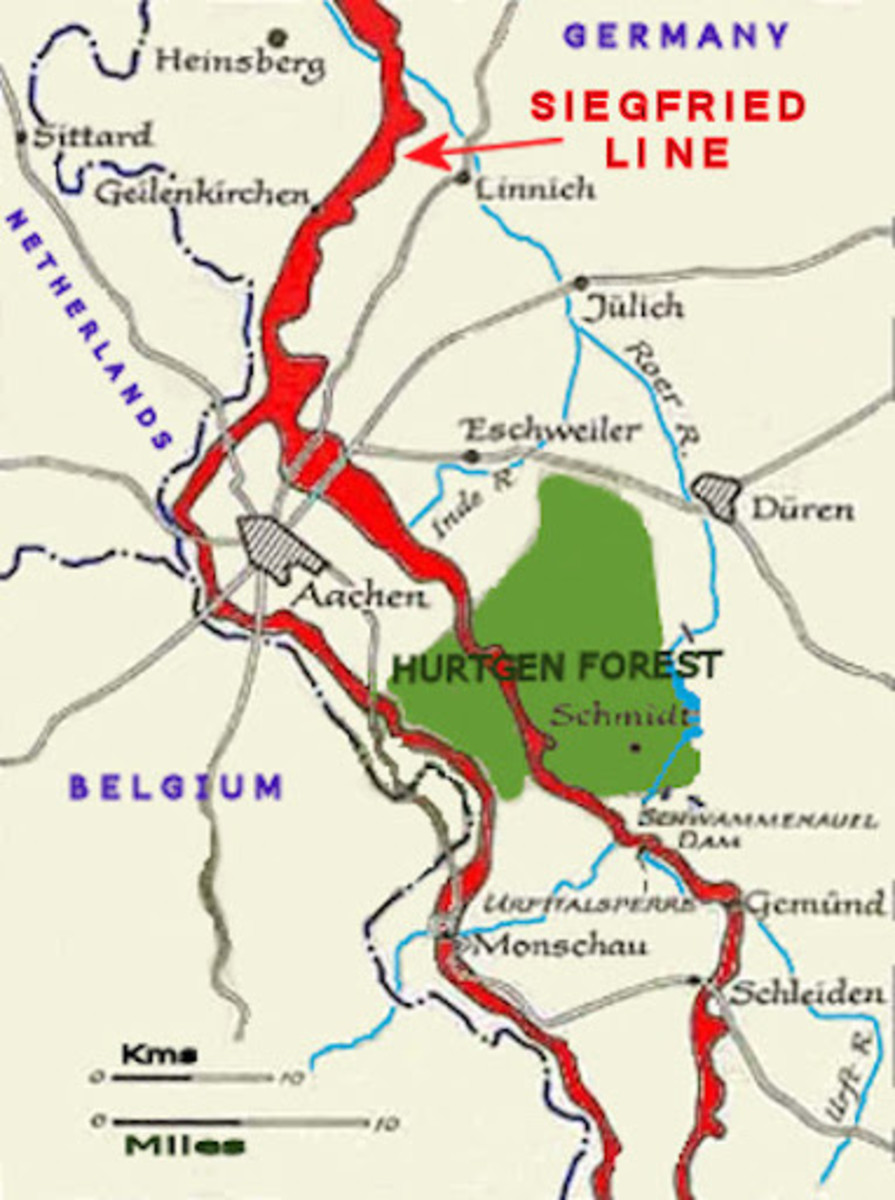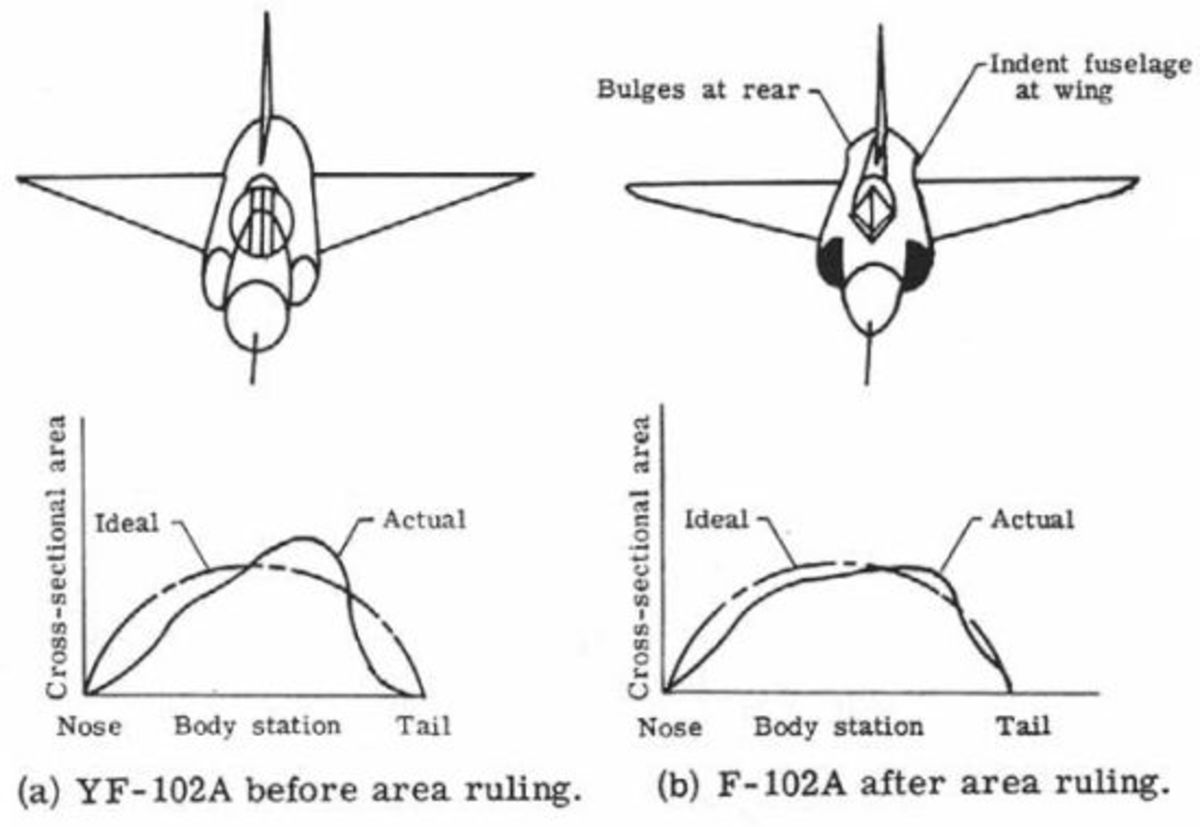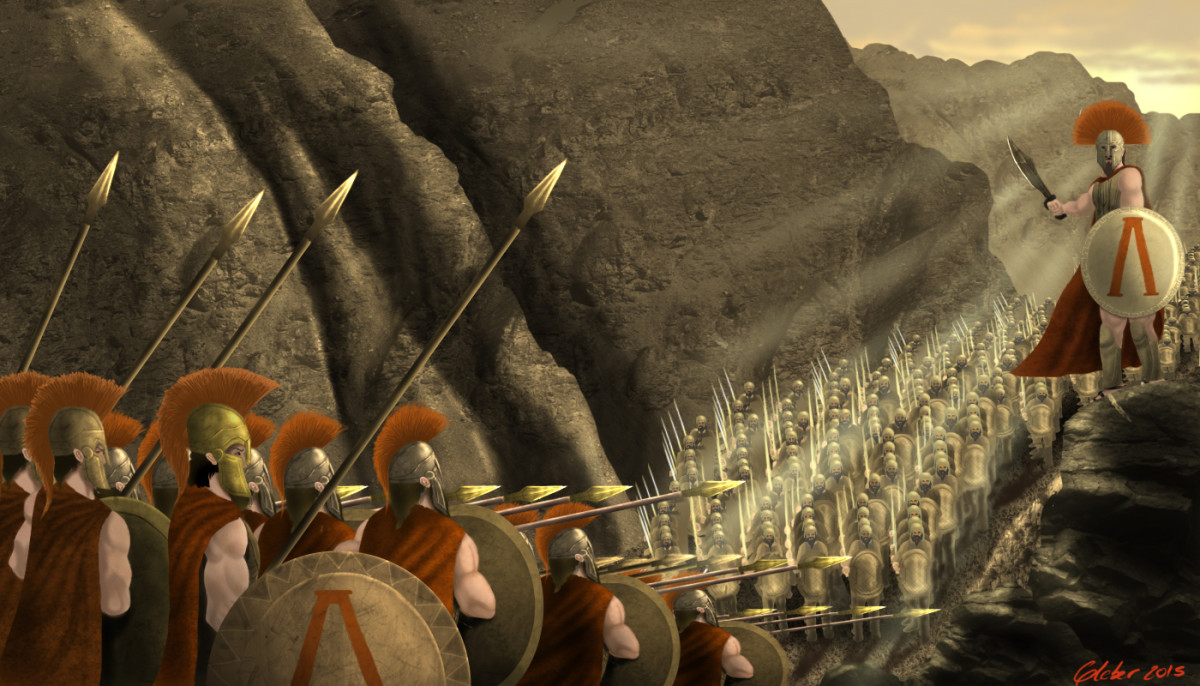American Soldiers Liberate Nazi Concentration Camps - I
A Survivor of the Nazi Regime
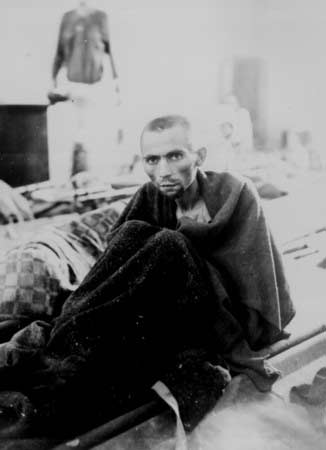
Preliminary Discoveries and Actions - Part I of 2
Many GIs spent only a few minutes to a few hours in a concentration camp, before moving onto their assigned military objectives. These soldiers were usually part of the units who overran, discovered or liberated the camps, not the special teams or units that arrived subsequently to provide food and medical care for the camp survivors.
Sergeant Harvey Metalsky, who passed through Landsberg with the 10th Armored Division recalled, "I did not go into any buildings because our job was to liberate whatever we could liberate and to chase German soldiers at that time. In other words, I was in an Armored Division, and the object of the troops at that time was to move as fast as we could, deeper into Germany...."[1] Other GIs reported passing through camps quickly with the expectation that Military Government personnel would arrive shortly with needed food and medicine.[2]
Requisite Military Inspections and Reports
A few officers conducted brief inspections before continuing toward their military targets. Dr. Sol Nichtern stated, "I did some kind of inspection which consisted of a walk-through, a shattering experience for me, and reported to Headquarters that a unit our size could not handle the camp." Dr. Nichtern along with his unit were instructed to proceed into Bavaria.[3]
Colonel James Moncrief conducted only the briefest of inspections at Buchenwald. "It was far more important for me to seek relief than to tarry making further inspections....I emphasized the urgency of the situation to the Division Chief of Staff....I reported that the limited assistance from within our division would be far short of that which was required. I urged that Third Army, to which the Armored Division was attached, be requested to send logistical support immediately."[4]
American soldiers who first arrived at the camps radioed immediately for assistance with manpower, medical supplies, food, and for advice on how to proceed. Most did not undertake formal inspections, but simply reported the conditions prevailing in the outer barbed wire enclosures to their superiors.[5]
First Official Priority - Securing Camp and Quarantining Survivors
After urgent radio messages were sent, the first administrative assignment for most military units involved securing the camp compounds and quarantining the prisoners. This task took precedence over providing food or medical care because the units which discovered and liberated the camps were in no way prepared to feed or give medical treatment to hundreds or even thousands of starving, diseased prisoners.
GIs almost to a man, however, gave away their rations, cigarettes, and candy bars, but the minimal supplies carried in their packs could not begin to feed the masses. Officers received instructions to post guards around the prisoner enclosures and to allow no one in and no one out.[6]
Many combat units found themselves in holding positions as detailed in this XV Corps report concerning Dachau. "Status of camp on morning of 30 April: The exterior of the camp was then under guard by the 45th Infantry Division. The interior of the camp was under guard by the 42nd Infantry Division, who were permitting no persons to leave or enter the interior of the area."[7]
GI's Instructed to Capture Inmates Who Escaped Into the Countryside
In some locations prisoners fled into the surrounding countryside and nearby villages and towns. This happened in locations where Nazi and German guards fled prior to the arrival of the Americans.[8] Colonel M. P. Rudolph described conditions at Dachau. "...facilities had been wrecked by the prisoners themselves in the first moments of liberation when they broke out and went looting for food and clothing."[9]
George Duncan recounted his experience with the escaped prisoners at Ohrdruf. "The ironic thing is we had to put the people we liberated in Linz [Austria] back in the prison camps....they went wild; they started looting the town and tearing the place to pieces and we were trying to restore order."[10]
Surgeon General's Concerns - Preventing the Spread of Typhus
Perhaps of graver concern than inmate looting and mob activities was the probable spread of typhus into large unprotected civilian populations. The Typhus Commission of the Surgeon General's Office reported that "in the brief interval between the liberation of the camps by our spearheads and the subsequent arrival of adequate numbers of holding forces, many louse-infested, typhus-incubatory inmates escaped."[11] For example, "at Mauthausen and Gusen the camps literally exploded into the surrounding area. Rounding up the inmates was only partly successful around each camp...."[12]
The concentration camp at Dachau was placed under an immediate and strict quarantine. "There would have been a catastrophe; if thousands of prisoners, motivated by a desire for vengeance had been allowed to escape the people in the bordering region would have suffered; it is impossible to predict the damage that might have resulted from the epidemic."[13] Throughout the concentration camp system and the surrounding localities inmates were screened by U.S. medical personnel, who quickly isolated those individuals with typhus or other infectious diseases.[14]
Change of Personnel - Front-line Troops Replaced by Support Personnel
Most of the GIs who initially entered the camps and assisted in containing the inmates inside the enclosures were soon replaced by personnel from Military Government, Hospital Teams, and specially trained Displaced Person (DP) teams.[15] A DP team was dispatched to Camp Landsberg on 28 April. Another DP team, number 115, headed by Lt. Charles Rosenbloom, arrived at Dachau less than 24 hours after liberation.
Rosenbloom's DP team included a doctor, a supply officer, an adjutant, a staff officer who would assist with administrative details and affairs, and six enlisted men. Trucks loaded with food and medical supplies dispatched by 7th Army arrived at Dachau on 30 April and hospital units, the 116th and 127th Evacuation Hospitals, arrived the following day.[16]
Early reports coming out of the camps issued urgent requests for additional assistance and more special units. "Combat troops are not organized, trained, nor equipped for the enforcement of Military Government. Mobile police elements such as motorized riot and police squads would be more effective than infantry trained soldiers."[17]
Summary Reports and the Arrival of War Crimes Teams
Summary reports issued in May describe the desperate need for special units and massive quantities of medical supplies and food. "With one or two rare exceptions, conditions in the more than 20 major concentration camps uncovered by allied armies have been extremely critical. Army Groups have made every effort to rush specialist personnel, medical equipment and supplies to the camps...." "The handling of the Dachau Concentration Camp which was uncovered late in April, with its more than thirty thousand diseased, starved inmates, was a difficult job that was still unfinished by the end of May. The task was so immense and urgent that the army made available large resources of supply, personnel, etc...."[18]
The government also trained War Crimes teams, who were sent into concentration camps to search for and secure camp records, in particular personnel records. They were responsible for collecting various kinds of evidence to be presented at War Crimes trials, and they systematically interviewed survivors and GIs, taking formal legal affidavits where appropriate.[19]
A Horrifying and Heart-rending Situation - Feeding the Starving Survivors
In their testimony GIs often mention the starved state of so many survivors. In a personal memoir Martin Loughlin, 80th Infantry Division, described what he witnessed. "My dim recollection was numbly handing out my K rations, as this was the greatest horror of war I had witnessed. It surpassed in scope the slaughter of the German army at Argentan and what I had witnessed in the Battle of the Bulge."[20]
Many GIs recall distributing whatever food, candy, gum, or cigarettes they had to the survivors. On the approach to Mauthausen camp, where substantial numbers of inmates had left the restrictive enclosures, GIs shared what they had. "We were out on the road and these people were released and just wandered away, and you'd see four or five or half a dozen together walking along the road, and every time a vehicle would go by, a soldier would throw a case of rations to them."[21]
Handing out rations created havoc at some camps, according to Private Vernon Roundtrey. "We had never dealt with a large group of people who were wild from starvation. We gave them our C rations which was a mistake. They were all over us in a minute, imploring us to give them anything edible."[22]
Author's Note: Part 2 of 2 will be available within two weeks. Thank you.
[1]Metalsky, Liberators, 48.
[2]Jack Bradford (1st Lieutenant, 9th Armored Battalion, Buchenwald), Telephone Interview by Theresa Ast, 1993; Zawacki, 1; Herbst, USHMM; Solomon, 20, Gratz; Auerbach, HMFI.
[3]Nichtern, 42, Q-Ast.
[4]Colonel Moncrief, Letter to Theresa Ast, 29 May 1993.
[5]Colonel Regnier, 71st Came, 27; Matteson, 11, JCRC; Mackenzie, DMC; Solomon, Gratz; Major Richard Winters, in Stephen Ambrose, Band of Brothers: E Company, 506th Regiment, 101st Airborne (New York: Simon and Schuster, 1992), 270 (hereafter cited as Ambrose, Band); Ward, USHMM.
[6]Pincus, Gratz; McFarland, 17, Walsh, 1, 17 Q-Ast.
[7]HQ, XV Corps, G-5 Report, Dachau, 5 May 1945, RG 331. The situation at Dachau concentration camp was a bit unusual. The inmate camp was part of a much larger installation that served the SS and contained an SS training school and other facilities. Dachau was approached from two different directions by the two infantry divisions (45th and 42nd) and they were ultimately assigned different areas to secure and in which to post guards.
[8]SHAEF G-5, Displaced Persons, "Concentration Camp at Gusen," 3 June 11945, 2711/7, RG 331; McKeithen, 18, Q-AST; Captain Charles E. Wilson, (84th ID), interview, 16 May 45, Salzwedel Concentration Camp, WNRC.
[9]Rudolph, "Typhus."
[10]Duncan, 5, Emory.
[11]Office of the Surgeon General, Typhus Commission, Report, 9 June 1945, to Headquarters, ETOUSA.
[12]Ibid.
[13]Quotation from Distel, Dachau Concentration Camp; cf., Pincus, Gratz; Marcus Smith, Harrowing of Hell, 104.
[14]G-5 Summary XII Corps, 9 May 1945, RG 407; Adzick, 2, Emory.
[15]For information on the Displaced Persons teams see chapter 2, section "Information Available Through Military Channels."
[16]S-2 Journal, 411th Infantry Regiment, 103rd Infantry Division, 28 April to Adjutant General's Office; Smith, Harrowing, 81; Sparks, Monograph, 23.
[17]141st Infantry Regiment, Report--Germany, April 1945, RG 407.
[18]SHAEF G-5, Displaced Persons Report No. 32, Section III, 28 May 1945, RG 331; Historical Report, G-5, 6th Army Group, 1-31 May 1945, Entry 54, RG 331.
[19]War Crimes Team 6823 / Report Dachau, to JAG, RG 338; XV Corps, Action Against Enemy, Reports After, April 1945, Annex 5 / G-5 Historical Data, RG 407; Auerbach, HMFI.
[20]Loughlin, Memoir.
[21]King, 6, Emory; Lerner, Stoneking, DMC; Milbauer, Peretz, USHMM; Braun, 2, Hallett, 7, Montesinos, 5, Emory; Pincus, Gratz; Darr, 4, JCRC.
[22]Private Vernon Roundtrey, I Company, 5th Infantry Regiment, 71st Infantry Division, in McMahon, Siegfried, 471.
Wagonload of Starved Prisoners Discovered by Allied Troops
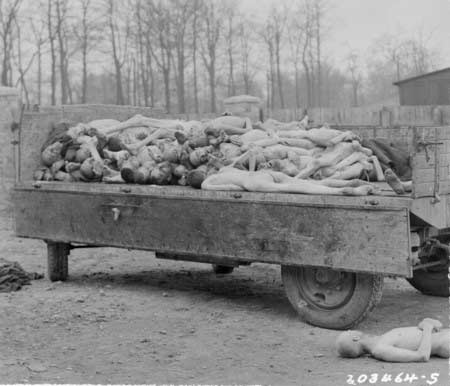
You Might Be Interested In These
- Age of Misinformation Manipulating People through th...
Age of Misinformation: Manipulating People Through the Internet© April 17, 2011 Mark Monroe Why is it so easy for people to be manipulated with a limited amount of information? In this age of instant... - Immigration Give me your poor
A review of the myths surrounding the issue of immigration - Will We Ever Learn The Lessons of Senator Joseph McC...
Will We Ever Learn? The Lessons of Senator Joseph McCarthy© Mark Monroe August 2, 2010 I was reading the book, The Age of Anxiety: McCarthyism to Terrorism , by Haynes Johnson. As the title suggests it is a study...
The Horror and Dislocation of War
